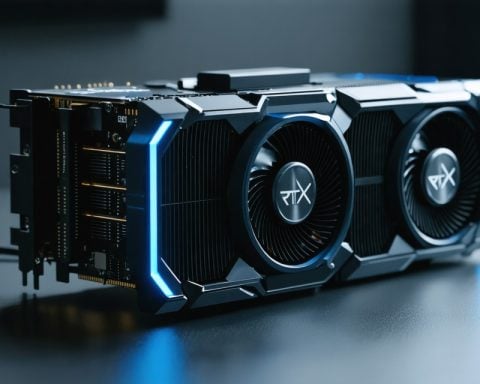Broadcom, a major player in the chip-making and enterprise software sectors, recently revealed its financial results for the closing quarter of fiscal 2024, which ended on November 3. The company’s robust earnings highlight an impressive growth trajectory, especially in the competitive realm of AI semiconductors.
Significant Growth in AI Chip Sales
In the fiscal year 2023, Broadcom’s AI chip sales almost doubled from the prior year to $3.8 billion. This growth skyrocketed in fiscal 2024, with sales multiplying by 3.2 times to reach $12.2 billion. This substantial increase places Broadcom in a strong position within the AI chip market, capturing an estimated 60 to 80 percent of the AI compute and networking chips market among key partners, including tech giants like Google, Meta Platforms, and ByteDance.
Future Market Predictions
Broadcom’s CEO, Hock Tan, suggested that by 2027, the market for AI compute and networking chips among these key players could soar between $60 billion and $90 billion. These projections come as these companies aim to build vast AI clusters comprising hundreds of thousands of computing engines, intensifying competition with established industry leaders like Nvidia and AMD.
Broadcom’s Financial Highlights
The quarter ending in early November saw Broadcom achieving $14.05 billion in sales, marking a 51.2 percent increase year-on-year. The integration of VMware has further boosted Broadcom’s profitability. Net income rose by 22.7 percent, buoyed by strategic cost management under Tan’s leadership. Additionally, the company saw a 12.3 percent increase in semiconductor solutions sales, translating to $8.23 billion, while infrastructure software sales, driven by VMware’s contributions, reached $5.82 billion.
As Broadcom continues to expand its footprint in the AI sector, the question remains: can it sustain this momentum and pose a significant challenge to Nvidia’s dominance?
Broadcom’s Meteoric Rise in the AI Chip Market: Can it Outrun the Competition?
In a digital era where artificial intelligence is akin to a gold rush, Broadcom is positioning itself as a formidable contender. The recent fiscal quarter ending in early November 2024 provides a glimpse into Broadcom’s ambitious trajectory, especially in the realm of AI semiconductors. But what lies ahead for this tech giant as it strives to challenge industry stalwarts like Nvidia and AMD?
Impressive Growth Trajectory: Breaking Down the Numbers
Broadcom’s surge in AI chip sales is a testament to its aggressive strategy in capturing market share. In fiscal 2023, AI chip sales nearly doubled from the previous year, climbing to $3.8 billion. Fast forward to fiscal 2024, and we’re witnessing a transformative leap—sales have multiplied by 3.2 times, reaching an impressive $12.2 billion. This surge underscores Broadcom’s strategic penetration into the AI chip domain, claiming an estimated 60 to 80 percent of the AI compute and networking chips market, with major partners such as Google, Meta Platforms, and ByteDance.
Future Market Trends: A Billion-Dollar Forecast
Looking ahead, CEO Hock Tan anticipates exponential growth in the AI compute and networking chips market. By 2027, projections indicate a market explosion to between $60 billion and $90 billion, driven by these partnerships. As these companies seek to construct vast AI clusters comprised of hundreds of thousands of computing engines, the stakes are higher than ever. Broadcom’s insight into these dynamics positions it as a strategic counterbalance against Nvidia and AMD.
Financial Highlights: A Robust Quarter
The financial metrics from Broadcom’s latest quarter reflect a robust performance. Revenue hit the $14.05 billion mark, a 51.2 percent year-over-year increase. This includes a noteworthy 12.3 percent rise in semiconductor solutions sales, totaling $8.23 billion. Infrastructure software, primarily bolstered by the VMware integration, contributed $5.82 billion. Together, these figures represent strategic financial management under Hock Tan’s leadership, as net income also rose by a significant 22.7 percent.
Innovations and Strategic Moves: A Path Forward
Broadcom’s strategy revolves around not just maintaining but enhancing its competitive edge in AI chips. Leveraging its deep integration with key players and technological innovations, Broadcom is poised to not just sustain its momentum but potentially redefine industry standards. The question remains: will it sustain this velocity to set new benchmarks or be outpaced by established leaders?
In summary, Broadcom’s recent achievements and future projections are not merely incremental; they signal a tectonic shift in the AI chip landscape. As the competition intensifies, all eyes are on Broadcom to see if it can redefine the rules of the game.



















